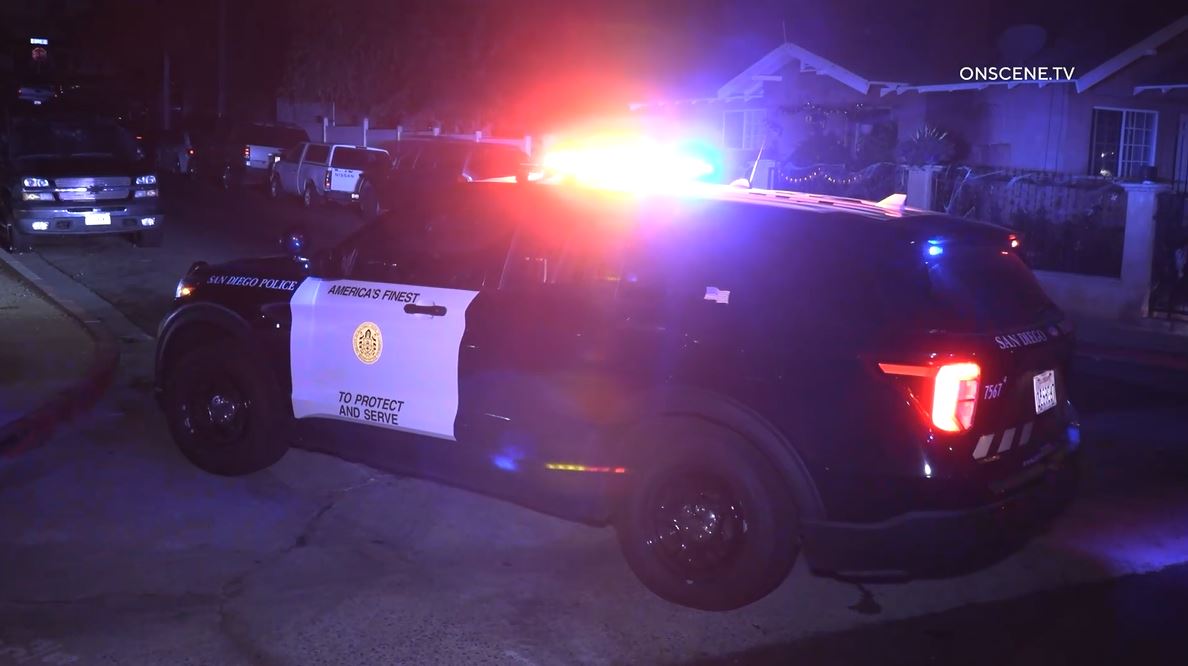
For editors and reporters, access to the police scanner is an essential – and immediate – source of information when it comes to covering breaking news, whether it’s a fire mass that rages in a community or rescuers trying to find a child swept away in a stream.
That access is under threat in California now that dozens of law enforcement agencies, including the San Diego Sheriff’s Department, have made the decision to fully encrypt their communications, based on a directive from the agency whose statewide computer network provides criminal histories, driver records and other public safety information.
For 80 years, information transmitted by scanners has increased the transparency and accountability of police departments to the public and the media.
The California Law Enforcement Telecommunications System opened the door to this move to encrypt communications in late 2020 when it said law enforcement must protect “identifying information” during transmission. But the agencies that block access block everything, not just the “credentials” required by the directive.
The California News Publishers Association said that “some law enforcement agencies have used this as justification to encrypt all radio transmissions, thereby cutting off needed transparency.”
This in turn led to a rollback of media organizations and the introduction of Senate Bill 1000, known as the Public Right to Police Radio Communications Act. Sen. Josh Becker, a Democrat from San Mateo, said he introduced the bill because “now is not the time to reduce public access to police activities.”
“Access to information about police activity is not an ‘operational change’ that should be made without input from the public, the media, or city, county, and state elected officials. state,” Becker said.
He said passage of his bill was key to restoring the public’s ability to listen to law enforcement scanners. If approved, the legislation would allow the media and the public access, from January 1, 2023, to police communications as long as it does not reveal undercover operations or include information confidential.
Local media representatives are united in their opposition to encrypted communications and support Becker’s legislation.
Cliff Albert, a 41-year veteran in the local news business, said encryption would “do the public a disservice”. Albert, who is news director at 600 KOGO Newsradio, said encryption “would make it more difficult for the community not only to be properly informed and in a timely manner, but it would also be more difficult to alert members of the public to potentially dangerous situations”. what they need to know.
Miriam Raftery, editor of online news site East County Magazine, agrees. “There is simply no legitimate reason for our sheriff to remove all scanner communications from the public,” she said.
She noted that smaller police departments like La Mesa and El Cajon encrypted all communications, while the San Diego Police Department only transferred private information to a separate secure channel and kept the rest available.
She complained that the sheriff’s department has the ability to use separate secure channels, if needed, but chose not to.
Recently retired NBC7 producer Paul Krueger said: “I support any legislation that protects the ability of the media – and the public – to monitor law enforcement activities without endangering our police officers and fire officers. . As a longtime local journalist who has worked in both print and broadcast media, I know how much working journalists need access to police and fire to keep the public informed. .
Lt. Amber Baggs, director of media relations for the sheriff’s department, said her agency is working on a solution.
“We are currently working on a public-facing service call system that will be hosted on our public website,” she said. “Once all the details are finalized, we will issue a press release to update our communities and the media.”
Baggs added, “I can tell you that the San Diego County Sheriff’s Department appreciates our communication with members of the press and the public. We want to keep them informed.
Californian’s Aware and its assistant general counsel, Shaila Nathu, wrote in support of the bill because “access to police radio communications is an essential tool in the fight for police transparency and accountability.” The SB 1000 proactively demands that these tools be accessible to the press and the public.
Raftery agrees, saying: “While I agree that victims’ personal data should be kept confidential, this should not be used as an excuse to prevent press and public access to the vast majority of scanner traffic. “.
JW August is a San Diego-based broadcast and digital journalist.

